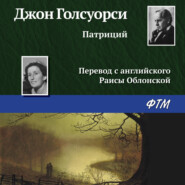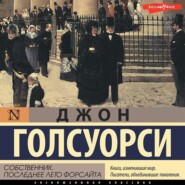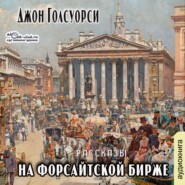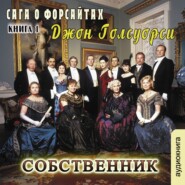По всем вопросам обращайтесь на: info@litportal.ru
(©) 2003-2024.
✖
The Dark Flower
Настройки чтения
Размер шрифта
Высота строк
Поля
“M. LENNAN.”
When he had stamped this production and dropped it in the letter-box, he had the oddest feeling, as if he had been let out of school; a desire to rush about, to frolic. What should he do? Cis, of course, would be busy – they were all busy about the wedding. He would go and saddle Bolero, and jump him in the park; or should he go down along the river and watch the jays? Both seemed lonely occupations. And he stood in the window – dejected. At the age of five, walking with his nurse, he had been overheard remarking: “Nurse, I want to eat a biscuit – ALL THE WAY I want to eat a biscuit!” and it was still rather so with him perhaps – all the way he wanted to eat a biscuit. He bethought him then of his modelling, and went out to the little empty greenhouse where he kept his masterpieces. They seemed to him now quite horrible – and two of them, the sheep and the turkey, he marked out for summary destruction. The idea occurred to him that he might try and model that hawk escaping with the little rabbit; but when he tried, no nice feeling came, and flinging the things down he went out. He ran along the unweeded path to the tennis ground – lawn tennis was then just coming in. The grass looked very rough. But then, everything about that little manor house was left rather wild and anyhow; why, nobody quite knew, and nobody seemed to mind. He stood there scrutinizing the condition of the ground. A sound of humming came to his ears. He got up on the wall. There was Sylvia sitting in the field, making a wreath of honeysuckle. He stood very quiet and listened. She looked pretty – lost in her tune. Then he slid down off the wall, and said gently:
“Hallo!”
She looked round at him, her eyes very wide open.
“Your voice is jolly, Sylvia!”
“Oh, no!”
“It is. Come and climb a tree!”
“Where?”
“In the park, of course.”
They were some time selecting the tree, many being too easy for him, and many too hard for her; but one was found at last, an oak of great age, and frequented by rooks. Then, insisting that she must be roped to him, he departed to the house for some blind-cord. The climb began at four o’clock – named by him the ascent of the Cimone della Pala. He led the momentous expedition, taking a hitch of the blind-cord round a branch before he permitted her to move. Two or three times he was obliged to make the cord fast and return to help her, for she was not an ‘expert’; her arms seemed soft, and she was inclined to straddle instead of trusting to one foot. But at last they were settled, streaked indeed with moss, on the top branch but two. They rested there, silent, listening to the rooks soothing an outraged dignity. Save for this slowly subsiding demonstration it was marvellously peaceful and remote up there, half-way to a blue sky thinly veiled from them by the crinkled brown-green leaves. The peculiar dry mossy smell of an oak-tree was disturbed into the air by the least motion of their feet or hands against the bark. They could hardly see the ground, and all around, other gnarled trees barred off any view.
He said:
“If we stay up here till it’s dark we might see owls.”
“Oh, no! Owls are horrible!”
“What! They’re LOVELY – especially the white ones.”
“I can’t stand their eyes, and they squeak so when they’re hunting.”
“Oh! but that’s so jolly, and their eyes are beautiful.”
“They’re always catching mice and little chickens; all sorts of little things.”
“But they don’t mean to; they only want them to eat. Don’t you think things are jolliest at night?”
She slipped her arm in his.
“No; I don’t like the dark.”
“Why not? It’s splendid – when things get mysterious.” He dwelt lovingly on that word.
“I don’t like mysterious things. They frighten you.”
“Oh, Sylvia!”
“No, I like early morning – especially in spring, when it’s beginning to get leafy.”
“Well, of course.”
She was leaning against him, for safety, just a little; and stretching out his arm, he took good hold of the branch to make a back for her. There was a silence. Then he said:
“If you could only have one tree, which would you have?”
“Not oaks. Limes – no – birches. Which would you?”
He pondered. There were so many trees that were perfect. Birches and limes, of course; but beeches and cypresses, and yews, and cedars, and holm-oaks – almost, and plane-trees; then he said suddenly:
“Pines; I mean the big ones with reddish stems and branches pretty high up.”
“Why?”
Again he pondered. It was very important to explain exactly why; his feelings about everything were concerned in this. And while he mused she gazed at him, as if surprised to see anyone think so deeply. At last he said:
“Because they’re independent and dignified and never quite cold, and their branches seem to brood, but chiefly because the ones I mean are generally out of the common where you find them. You know – just one or two, strong and dark, standing out against the sky.”
“They’re TOO dark.”
It occurred to him suddenly that he had forgotten larches. They, of course, could be heavenly, when you lay under them and looked up at the sky, as he had that afternoon out there. Then he heard her say:
“If I could only have one flower, I should have lilies of the valley, the small ones that grow wild and smell so jolly.”
He had a swift vision of another flower, dark – very different, and was silent.
“What would you have, Mark?” Her voice sounded a little hurt. “You ARE thinking of one, aren’t you?”
He said honestly:
“Yes, I am.”
“Which?”
“It’s dark, too; you wouldn’t care for it a bit.”
“How d’you know?”
“A clove carnation.”
“But I do like it – only – not very much.”
He nodded solemnly.
“I knew you wouldn’t.”
Then a silence fell between them. She had ceased to lean against him, and he missed the cosy friendliness of it. Now that their voices and the cawings of the rooks had ceased, there was nothing heard but the dry rustle of the leaves, and the plaintive cry of a buzzard hawk hunting over the little tor across the river. There were nearly always two up there, quartering the sky. To the boy it was lovely, that silence – like Nature talking to you – Nature always talked in silences. The beasts, the birds, the insects, only really showed themselves when you were still; you had to be awfully quiet, too, for flowers and plants, otherwise you couldn’t see the real jolly separate life there was in them. Even the boulders down there, that old Godden thought had been washed up by the Flood, never showed you what queer shapes they had, and let you feel close to them, unless you were thinking of nothing else. Sylvia, after all, was better in that way than he had expected. She could keep quiet (he had thought girls hopeless); she was gentle, and it was rather jolly to watch her. Through the leaves there came the faint far tinkle of the tea-bell.
She said: “We must get down.”
It was much too jolly to go in, really. But if she wanted her tea – girls always wanted tea! And, twisting the cord carefully round the branch, he began to superintend her descent. About to follow, he heard her cry:
When he had stamped this production and dropped it in the letter-box, he had the oddest feeling, as if he had been let out of school; a desire to rush about, to frolic. What should he do? Cis, of course, would be busy – they were all busy about the wedding. He would go and saddle Bolero, and jump him in the park; or should he go down along the river and watch the jays? Both seemed lonely occupations. And he stood in the window – dejected. At the age of five, walking with his nurse, he had been overheard remarking: “Nurse, I want to eat a biscuit – ALL THE WAY I want to eat a biscuit!” and it was still rather so with him perhaps – all the way he wanted to eat a biscuit. He bethought him then of his modelling, and went out to the little empty greenhouse where he kept his masterpieces. They seemed to him now quite horrible – and two of them, the sheep and the turkey, he marked out for summary destruction. The idea occurred to him that he might try and model that hawk escaping with the little rabbit; but when he tried, no nice feeling came, and flinging the things down he went out. He ran along the unweeded path to the tennis ground – lawn tennis was then just coming in. The grass looked very rough. But then, everything about that little manor house was left rather wild and anyhow; why, nobody quite knew, and nobody seemed to mind. He stood there scrutinizing the condition of the ground. A sound of humming came to his ears. He got up on the wall. There was Sylvia sitting in the field, making a wreath of honeysuckle. He stood very quiet and listened. She looked pretty – lost in her tune. Then he slid down off the wall, and said gently:
“Hallo!”
She looked round at him, her eyes very wide open.
“Your voice is jolly, Sylvia!”
“Oh, no!”
“It is. Come and climb a tree!”
“Where?”
“In the park, of course.”
They were some time selecting the tree, many being too easy for him, and many too hard for her; but one was found at last, an oak of great age, and frequented by rooks. Then, insisting that she must be roped to him, he departed to the house for some blind-cord. The climb began at four o’clock – named by him the ascent of the Cimone della Pala. He led the momentous expedition, taking a hitch of the blind-cord round a branch before he permitted her to move. Two or three times he was obliged to make the cord fast and return to help her, for she was not an ‘expert’; her arms seemed soft, and she was inclined to straddle instead of trusting to one foot. But at last they were settled, streaked indeed with moss, on the top branch but two. They rested there, silent, listening to the rooks soothing an outraged dignity. Save for this slowly subsiding demonstration it was marvellously peaceful and remote up there, half-way to a blue sky thinly veiled from them by the crinkled brown-green leaves. The peculiar dry mossy smell of an oak-tree was disturbed into the air by the least motion of their feet or hands against the bark. They could hardly see the ground, and all around, other gnarled trees barred off any view.
He said:
“If we stay up here till it’s dark we might see owls.”
“Oh, no! Owls are horrible!”
“What! They’re LOVELY – especially the white ones.”
“I can’t stand their eyes, and they squeak so when they’re hunting.”
“Oh! but that’s so jolly, and their eyes are beautiful.”
“They’re always catching mice and little chickens; all sorts of little things.”
“But they don’t mean to; they only want them to eat. Don’t you think things are jolliest at night?”
She slipped her arm in his.
“No; I don’t like the dark.”
“Why not? It’s splendid – when things get mysterious.” He dwelt lovingly on that word.
“I don’t like mysterious things. They frighten you.”
“Oh, Sylvia!”
“No, I like early morning – especially in spring, when it’s beginning to get leafy.”
“Well, of course.”
She was leaning against him, for safety, just a little; and stretching out his arm, he took good hold of the branch to make a back for her. There was a silence. Then he said:
“If you could only have one tree, which would you have?”
“Not oaks. Limes – no – birches. Which would you?”
He pondered. There were so many trees that were perfect. Birches and limes, of course; but beeches and cypresses, and yews, and cedars, and holm-oaks – almost, and plane-trees; then he said suddenly:
“Pines; I mean the big ones with reddish stems and branches pretty high up.”
“Why?”
Again he pondered. It was very important to explain exactly why; his feelings about everything were concerned in this. And while he mused she gazed at him, as if surprised to see anyone think so deeply. At last he said:
“Because they’re independent and dignified and never quite cold, and their branches seem to brood, but chiefly because the ones I mean are generally out of the common where you find them. You know – just one or two, strong and dark, standing out against the sky.”
“They’re TOO dark.”
It occurred to him suddenly that he had forgotten larches. They, of course, could be heavenly, when you lay under them and looked up at the sky, as he had that afternoon out there. Then he heard her say:
“If I could only have one flower, I should have lilies of the valley, the small ones that grow wild and smell so jolly.”
He had a swift vision of another flower, dark – very different, and was silent.
“What would you have, Mark?” Her voice sounded a little hurt. “You ARE thinking of one, aren’t you?”
He said honestly:
“Yes, I am.”
“Which?”
“It’s dark, too; you wouldn’t care for it a bit.”
“How d’you know?”
“A clove carnation.”
“But I do like it – only – not very much.”
He nodded solemnly.
“I knew you wouldn’t.”
Then a silence fell between them. She had ceased to lean against him, and he missed the cosy friendliness of it. Now that their voices and the cawings of the rooks had ceased, there was nothing heard but the dry rustle of the leaves, and the plaintive cry of a buzzard hawk hunting over the little tor across the river. There were nearly always two up there, quartering the sky. To the boy it was lovely, that silence – like Nature talking to you – Nature always talked in silences. The beasts, the birds, the insects, only really showed themselves when you were still; you had to be awfully quiet, too, for flowers and plants, otherwise you couldn’t see the real jolly separate life there was in them. Even the boulders down there, that old Godden thought had been washed up by the Flood, never showed you what queer shapes they had, and let you feel close to them, unless you were thinking of nothing else. Sylvia, after all, was better in that way than he had expected. She could keep quiet (he had thought girls hopeless); she was gentle, and it was rather jolly to watch her. Through the leaves there came the faint far tinkle of the tea-bell.
She said: “We must get down.”
It was much too jolly to go in, really. But if she wanted her tea – girls always wanted tea! And, twisting the cord carefully round the branch, he began to superintend her descent. About to follow, he heard her cry:

















